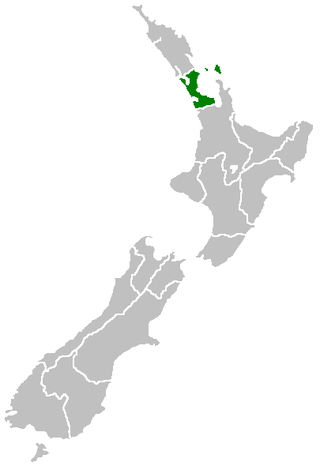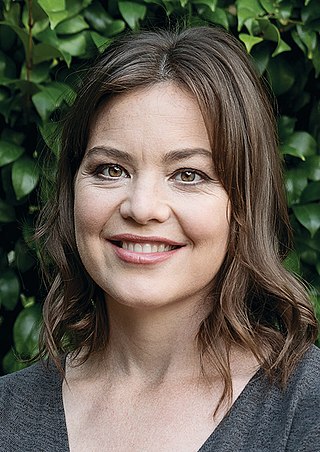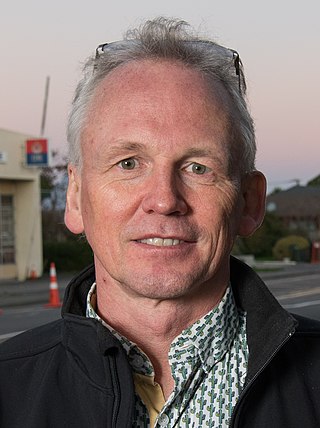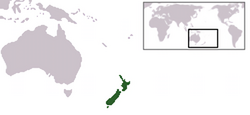
The Auckland Harbour Bridge is an eight-lane motorway bridge over the Waitematā Harbour in Auckland, New Zealand. It joins St Marys Bay on the Auckland city side with Northcote on the North Shore side. It is part of State Highway 1 and the Auckland Northern Motorway. The bridge is operated by the NZ Transport Agency (NZTA). It is the second-longest road bridge in New Zealand, and the longest in the North Island.

The European Cyclists' Federation (ECF) is a non-profit member-based umbrella federation of local, regional and national civil society organizations that promote cycling for both transportation and leisure.
Transport in Auckland, New Zealand's largest city, is defined by factors that include the shape of the Auckland isthmus, the suburban character of much of the urban area, a history of focusing investment on roading projects rather than public transport, and high car-ownership rates.
Cycling New Zealand, originally known as BikeNZ, is the national governing body for cycling organisations in New Zealand, and represents the interests of BMX NZ, Cycling New Zealand Road & Track, Mountain Bike NZ, and Cycling New Zealand Schools. Cycling New Zealand covers the disciplines of road, track, mountain bike, cyclo-cross, BMX, BMX freestyle, e-cycling sports, para-cycling, and recreational and commuter riding.

Bike Auckland, formerly Cycle Action Auckland (CAA) is a pro-cycling advocacy group in Auckland, New Zealand. The predominantly volunteer group aims to improve infrastructure and conditions, as well as perceptions of cycling to encourage more "everyday people" to use bicycles, including for commuting and recreation.
Bicycle helmets have been mandatory for bicycle riders of all ages in New Zealand since January 1994.
NZ Transport Agency Waka Kotahi (NZTA) is a New Zealand Crown entity tasked with promoting safe and functional transport by land, including the responsibility for driver and vehicle licensing, and administering the New Zealand state highway network. Waka Kotahi means 'one vessel' and is intended to convey the concept of "travelling together as one".

Cycling in New Zealand is the 5th most popular form of active recreation, but a very marginal commuting mode, with the share hovering around 1–3% in most major cities. This is due to a number of factors, principally safety fears.

The New Zealand Cycle Trail project is a New Zealand government initiative, co-funded together with local councils and charitable trusts, which is to build and operate a network of cycle routes through the country.
The NZ Cycling Conference is a series of cycle planning conferences started in 1997 in Hamilton. Since 2001, the conference series has a biennial schedule. The conferences are one of the key ways of exchanging expertise about planning and design for cycling in New Zealand. Starting in 2012, the scope of the conference includes both walking and cycling, by combining the previous Living Streets Aotearoa biennial NZ Walking Conference series, and was rebranded "2WALKandCYCLE".

Spokes Canterbury is the main cycling advocacy group in Canterbury, New Zealand. It was established in November 1998, as a successor to the former Canterbury Cyclists' Association. Cycling Action Network is the parent organisation for Spokes Canterbury. It has about 900 members, including "everyday" cyclists, road cyclists and mountain bikers.

The New Zealand Cycle Friendly Awards were devised by the Cycling Advocates' Network (CAN) in 2003. The purpose of the awards is to acknowledge and celebrate some of the most notable achievements in the country that are helping to promote cycling and to create a cycle-friendly environment. Since 2016, the awards have been jointly organised with the New Zealand Transport Agency and rebranded as the 'Bike to the Future Awards'.

Cycling in Auckland is a mode of transport in Auckland, New Zealand. The dominance of the car in the city, the negative attitudes of car drivers and general changes in transport patterns have made it a very marginal transport mode in the early 21st century, with remaining cyclists often riding for leisure and sports purposes.

Celia Margaret Wade-Brown is a New Zealand politician who has been a Green Party list MP since 19 January 2024. She previously served as the 34th mayor of Wellington, the capital city of New Zealand, from 2010 until 2016.

Manfred Neun is a German entrepreneur and a key figure in cycling advocacy. He is the former president of the European Cyclists' Federation and actively advocates for cycling and utility cycling in Europe and abroad.

Pippa Coom is a New Zealand politician, who is a former councillor on the Auckland Council and former chair of the Waitematā Local Board.

Julie Anne Genter is an American-born New Zealand politician who is a member of the House of Representatives representing the Green Party of Aotearoa New Zealand. Genter was elected to each Parliament from 2011 to 2023 on the party lists, before being elected as the Member of Parliament for the Rongotai electorate in the 2023 election. She served as the Minister for Women, Associate Minister for Health and Associate Minister for Transport during the first term of the Sixth Labour Government. She holds dual citizenship of New Zealand and the United States.

Tamatha-Kaye Erin Paul is a New Zealand activist and politician who is a Member of Parliament for Wellington Central. In 2018 she was the first Māori woman to be elected President of the Victoria University of Wellington Students' Association. Running as an independent Paul was elected to the Wellington City Council in 2019. She joined the Green Party of Aotearoa New Zealand ahead of the 2022 local elections.

Dame Carolyn Henwood is a former District and Youth Court judge in New Zealand, and an advocate for youth justice and the welfare of children in state care. She is active in the arts, particularly theatre and was a founder of Circa Theatre in Wellington.

Axel Peter Carl Downard-Wilke is a New Zealand transport planner and engineer known for his advocacy for cyclists in cities. Born in Germany, he moved to New Zealand for his education, and from 1997 to 2005 he worked for the Christchurch City Council as a traffic engineer, where he became involved in various projects to improve the safety of cycling in the city. He then co-established a consultancy firm practising in the areas of traffic engineering, transportation planning and town planning. Downard-Wilke was a member of the technical team for the New Zealand Cycle Trail Project, and one of the lead authors of the New Zealand Cycle Trail Design Guide first published in February 2010.
















